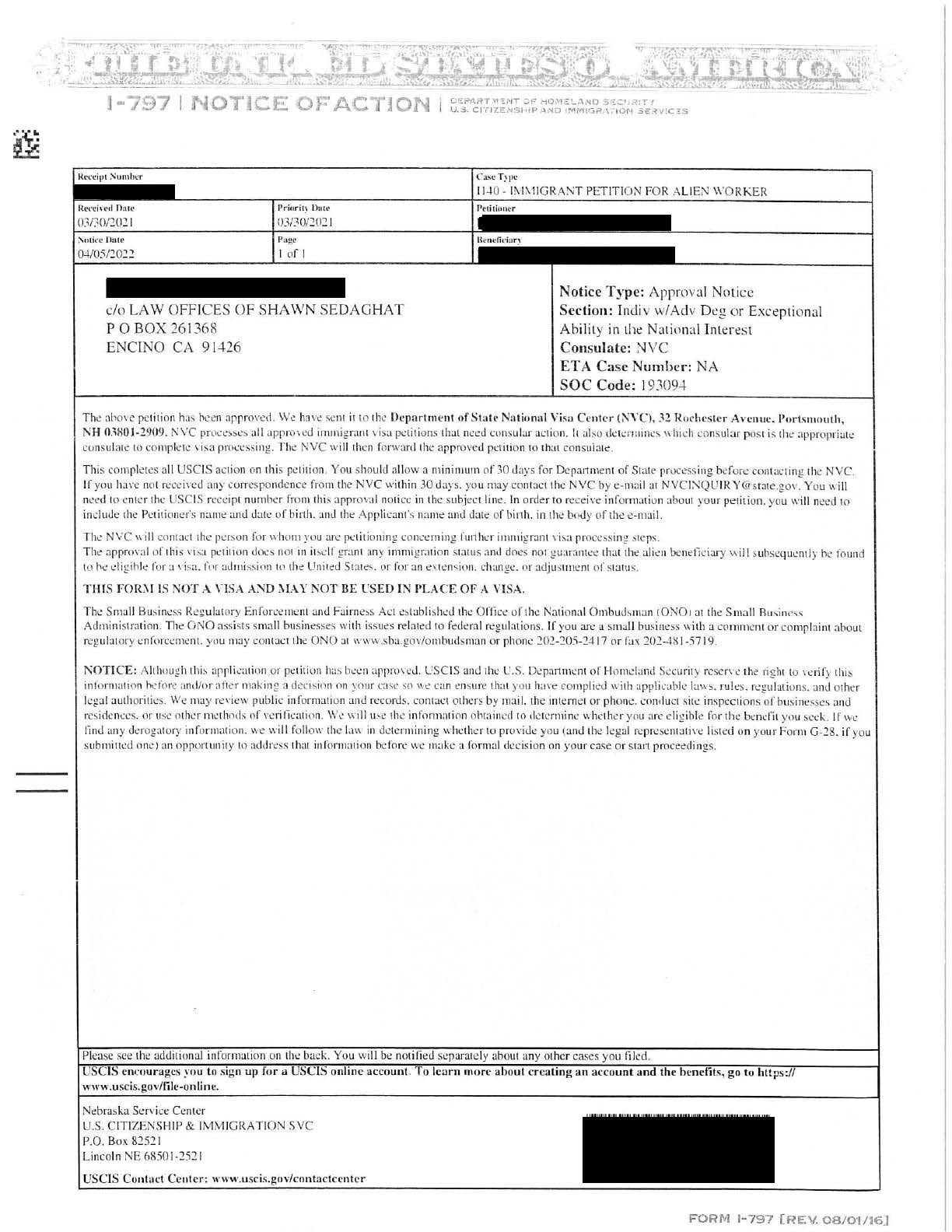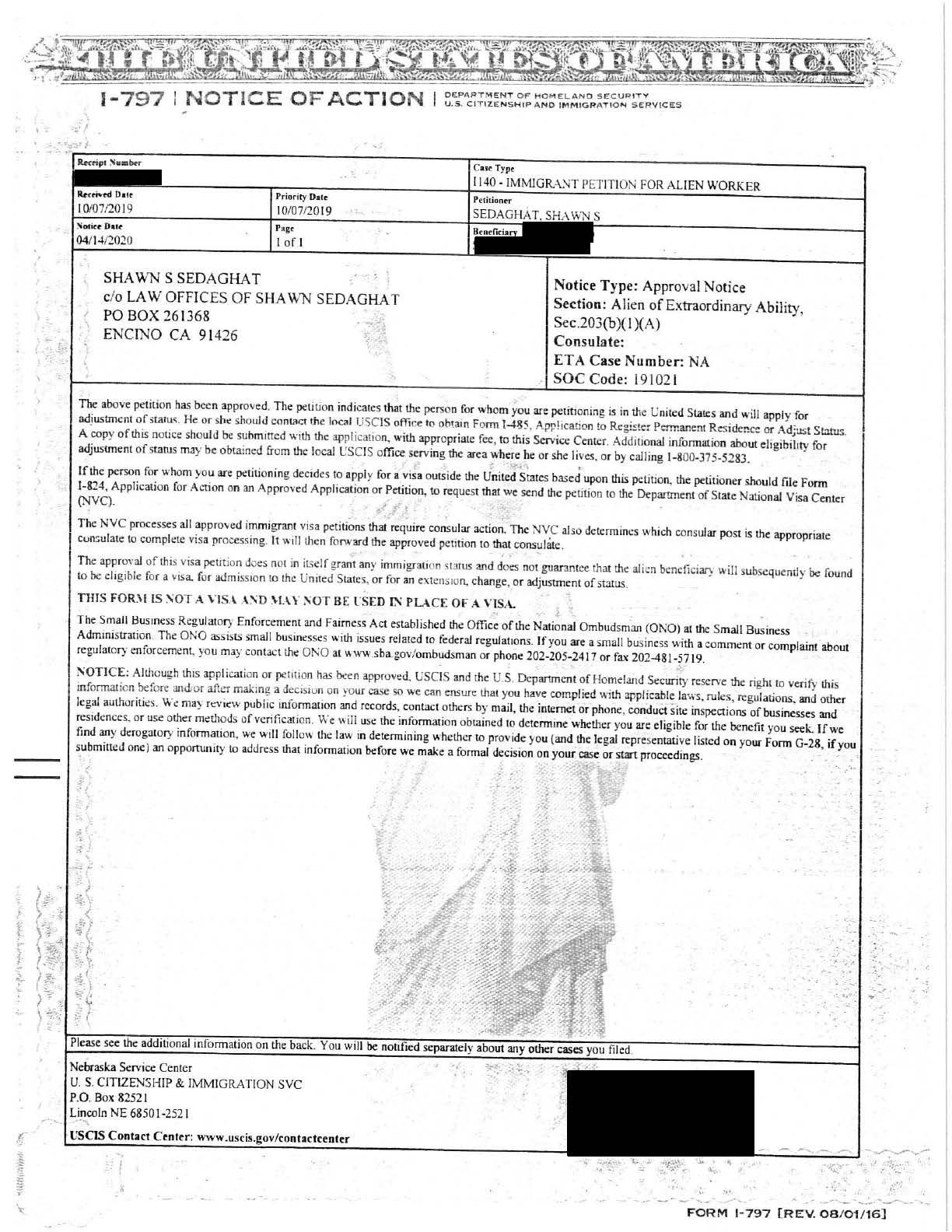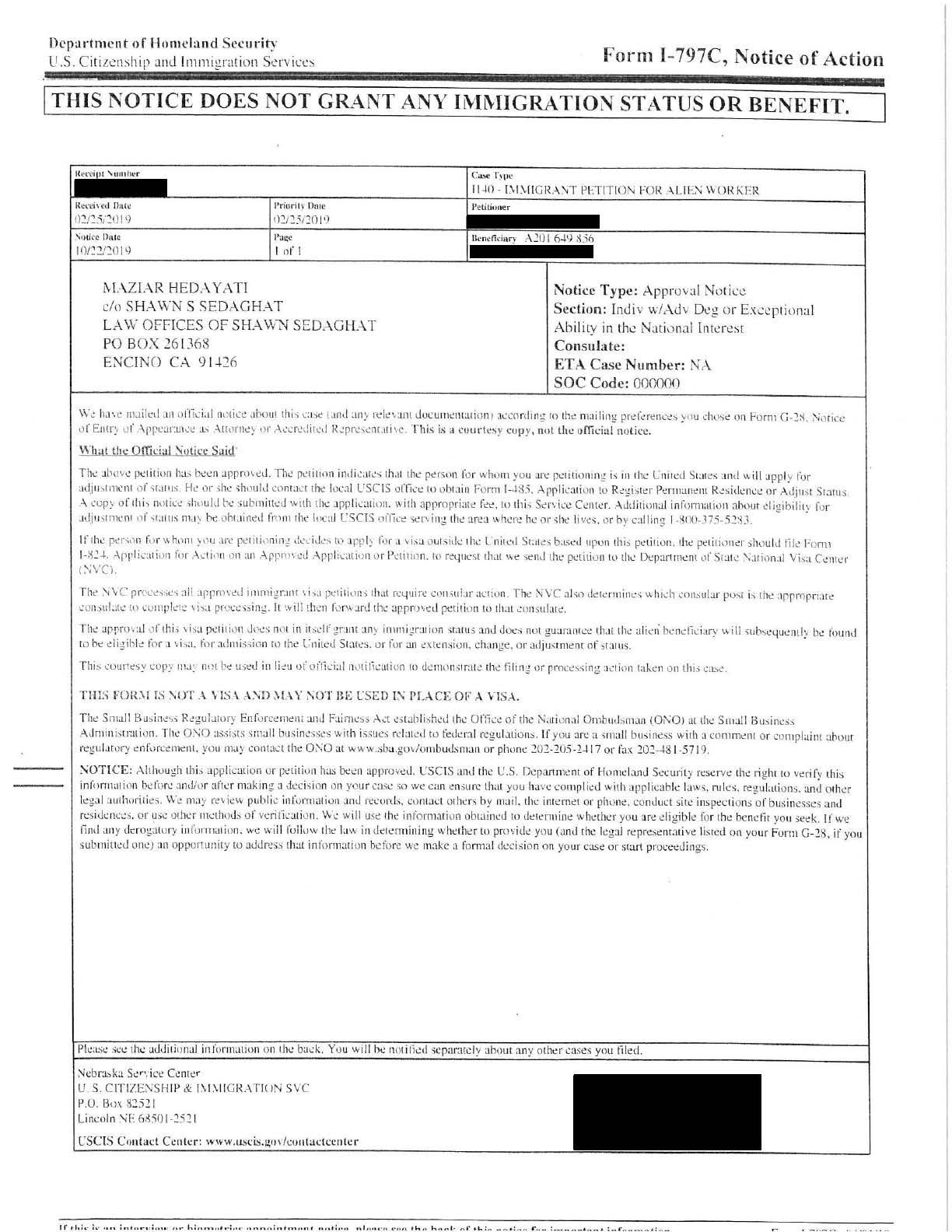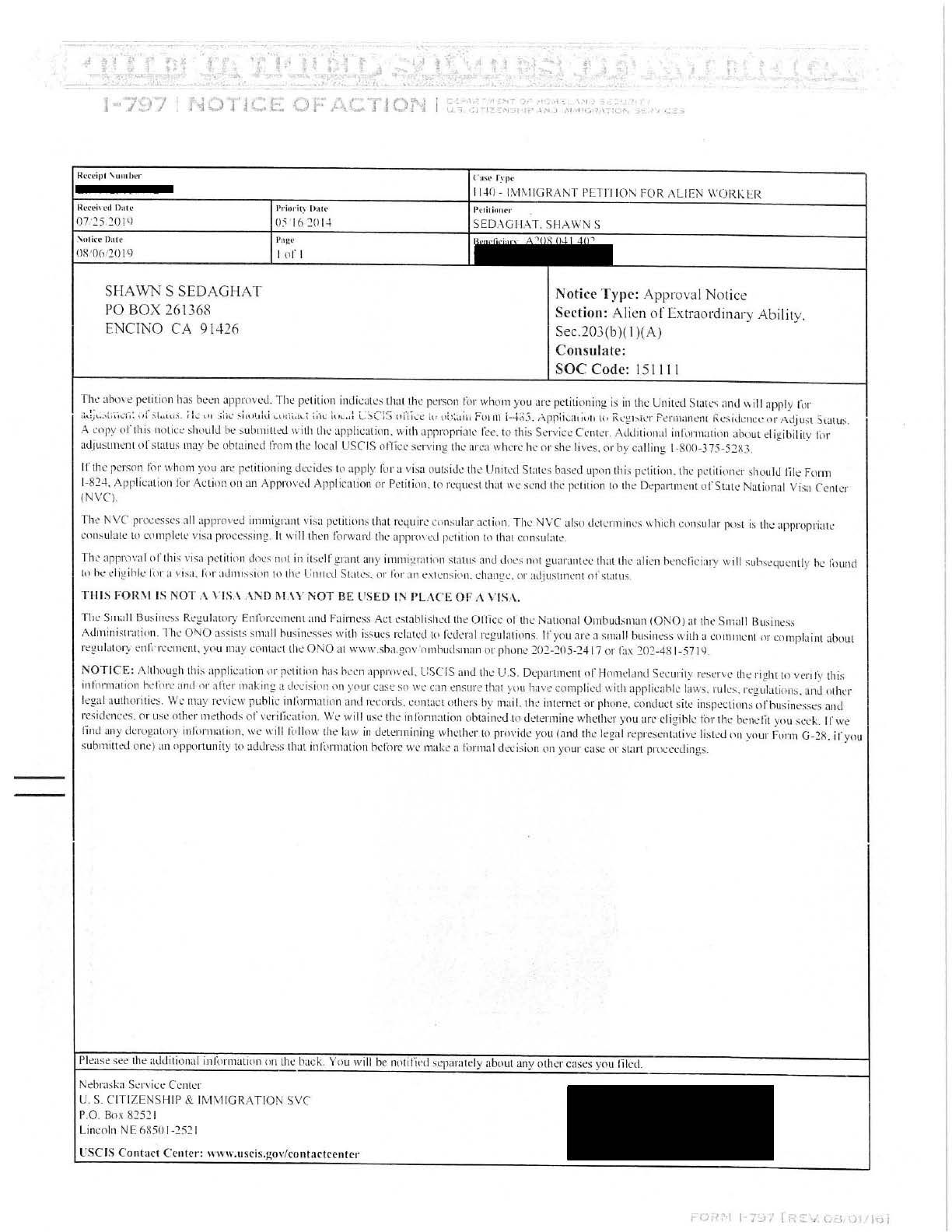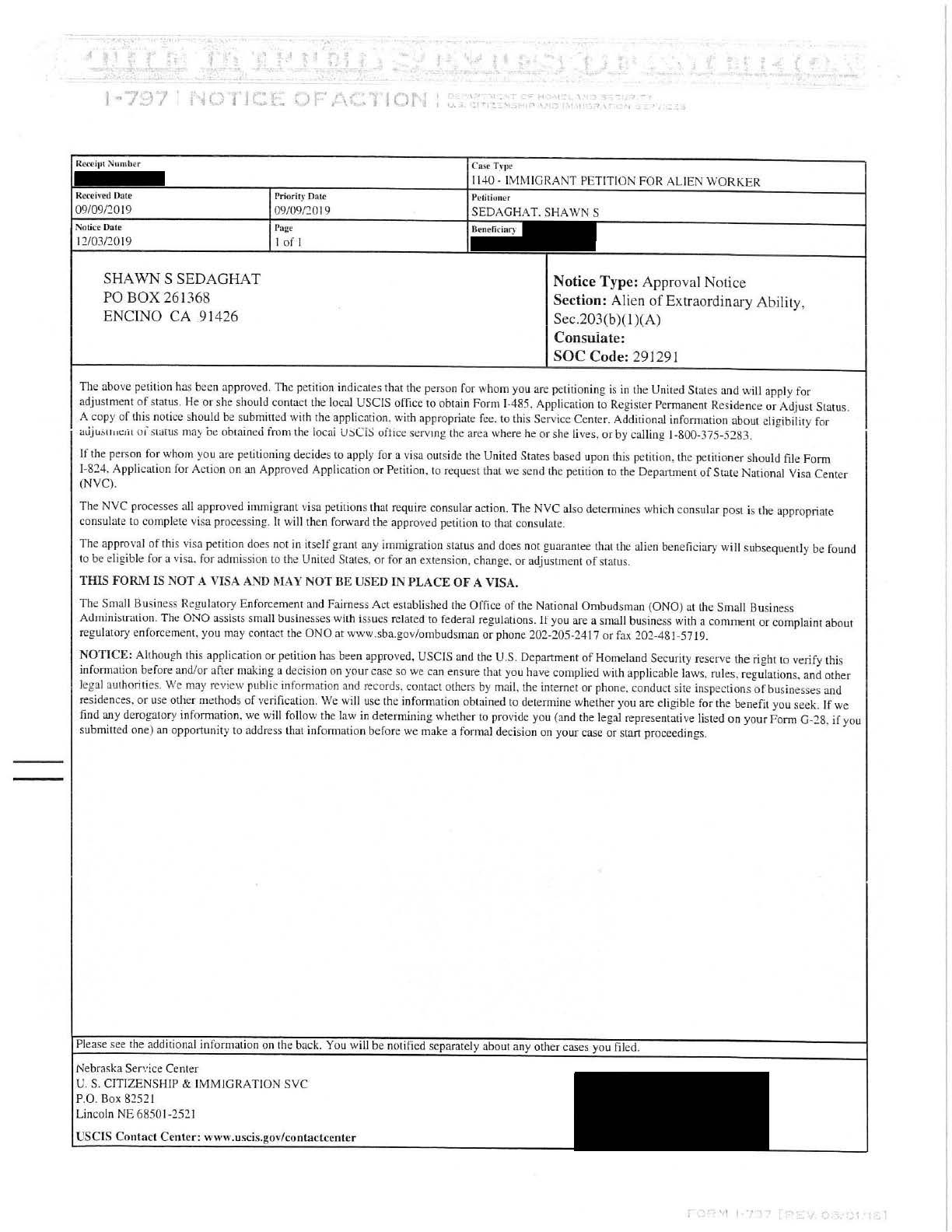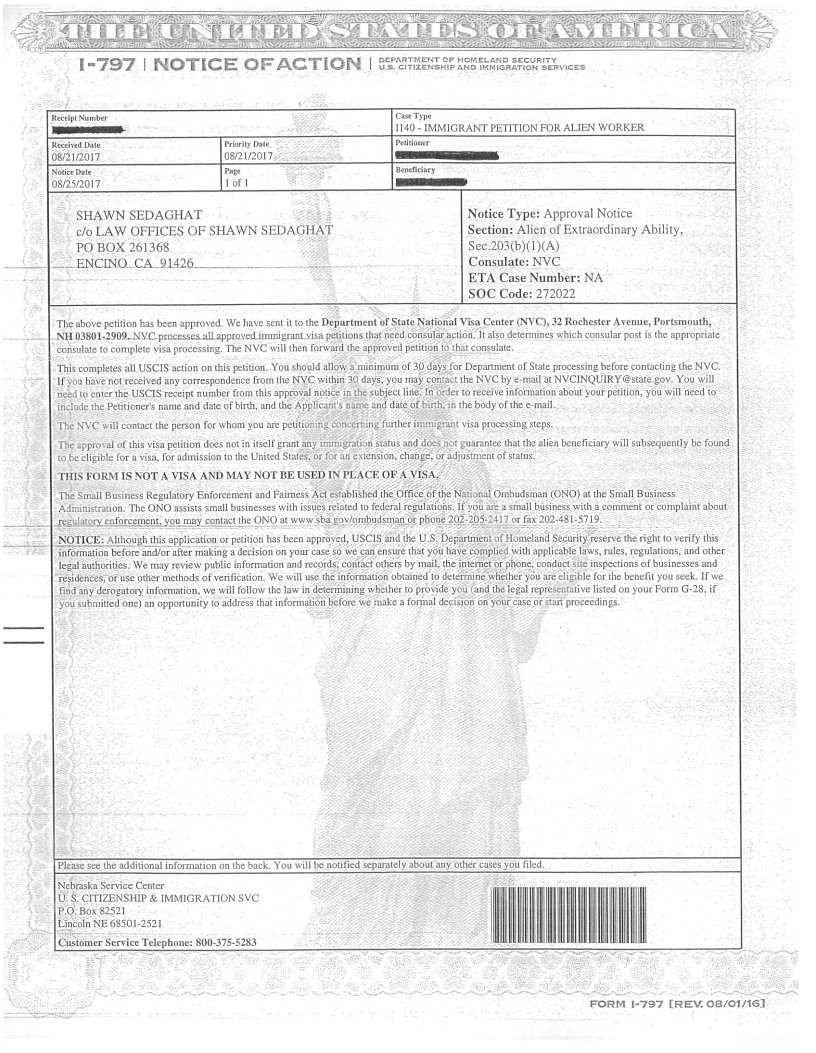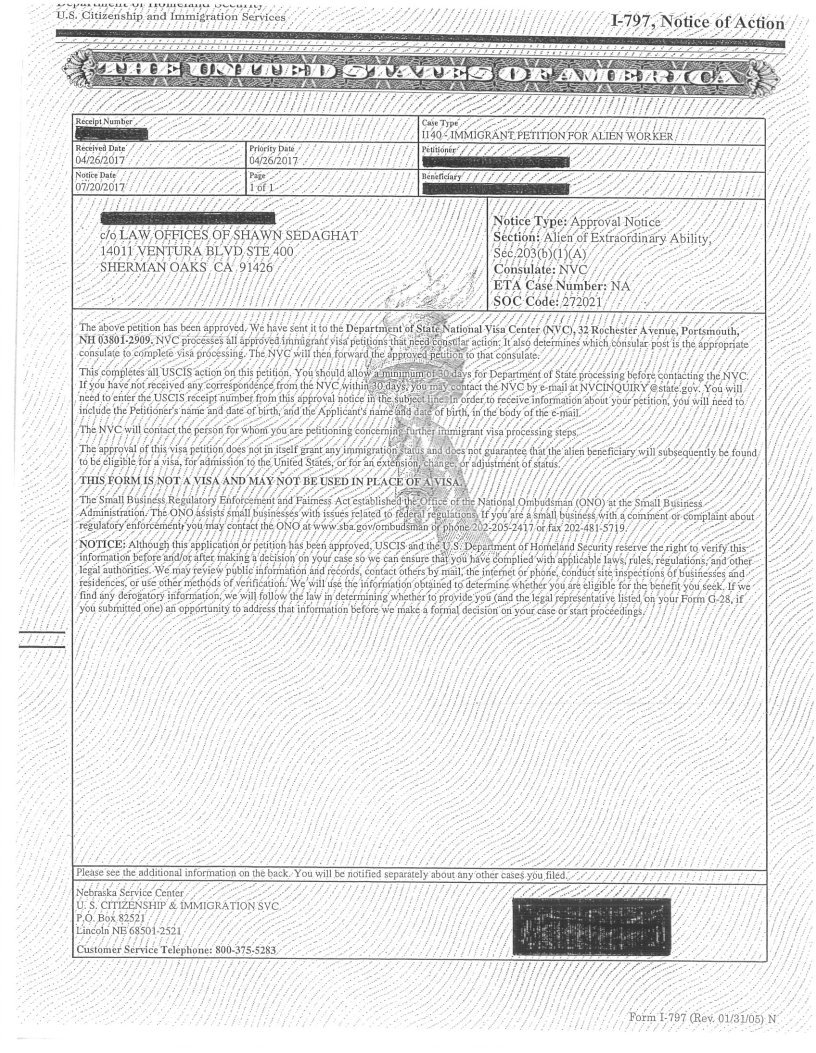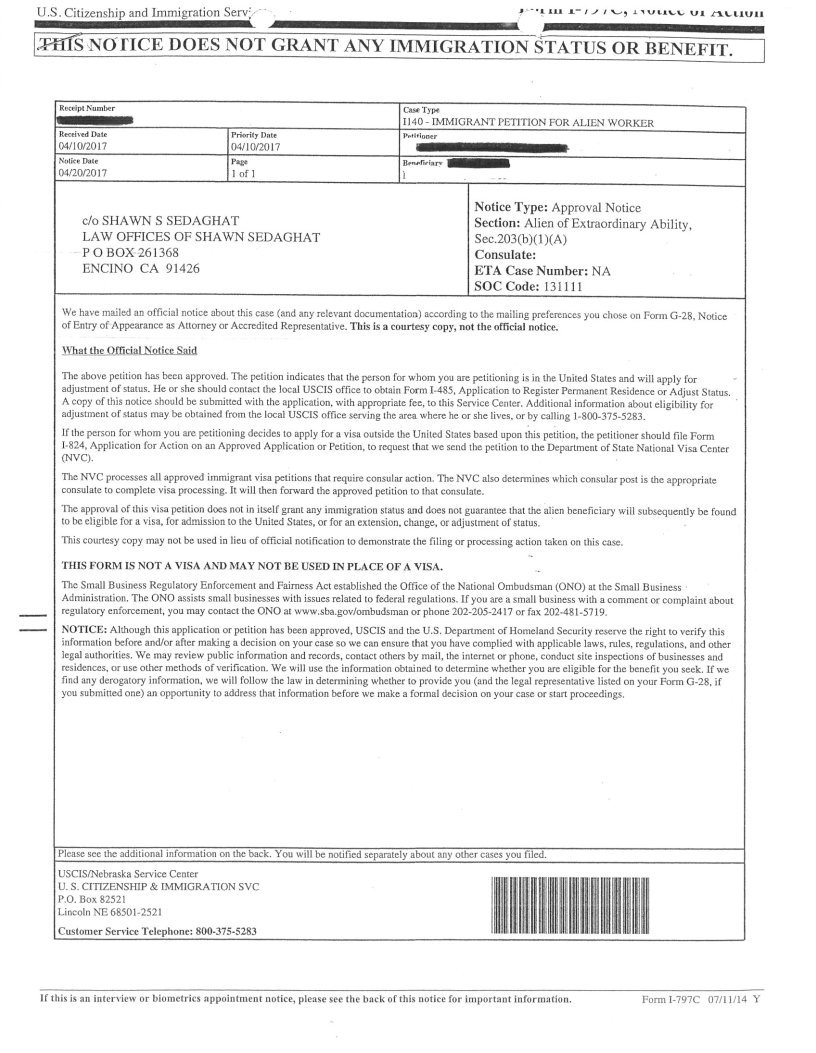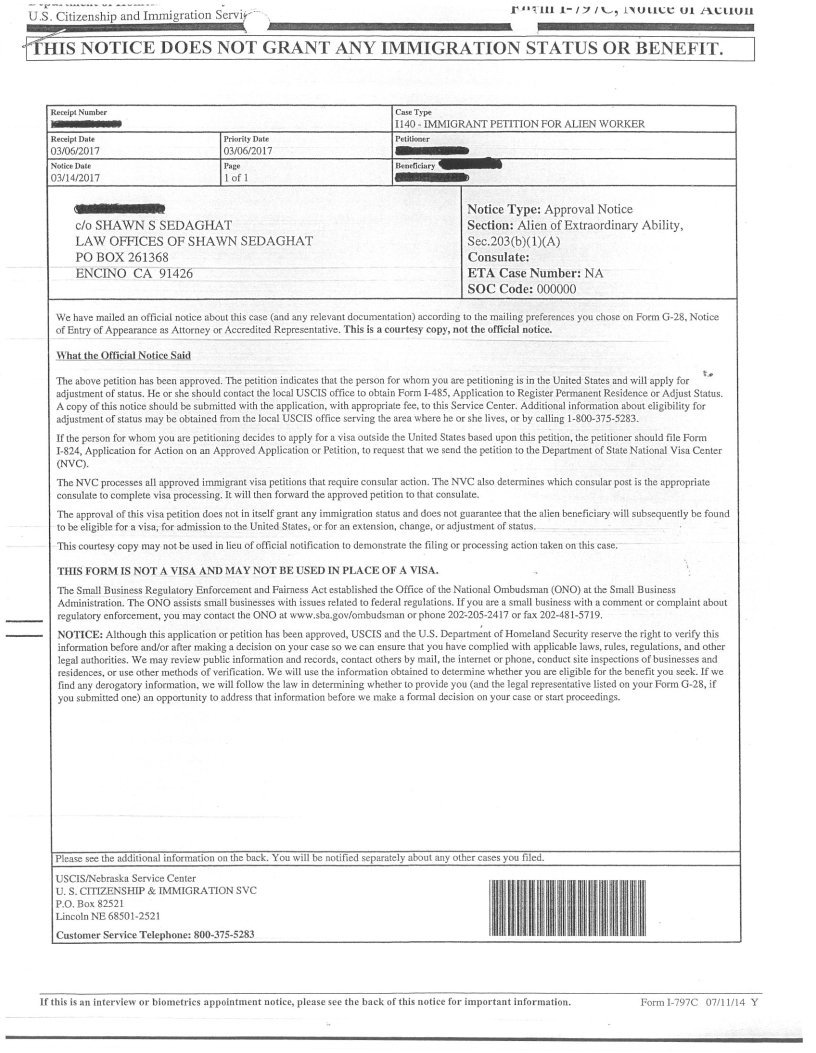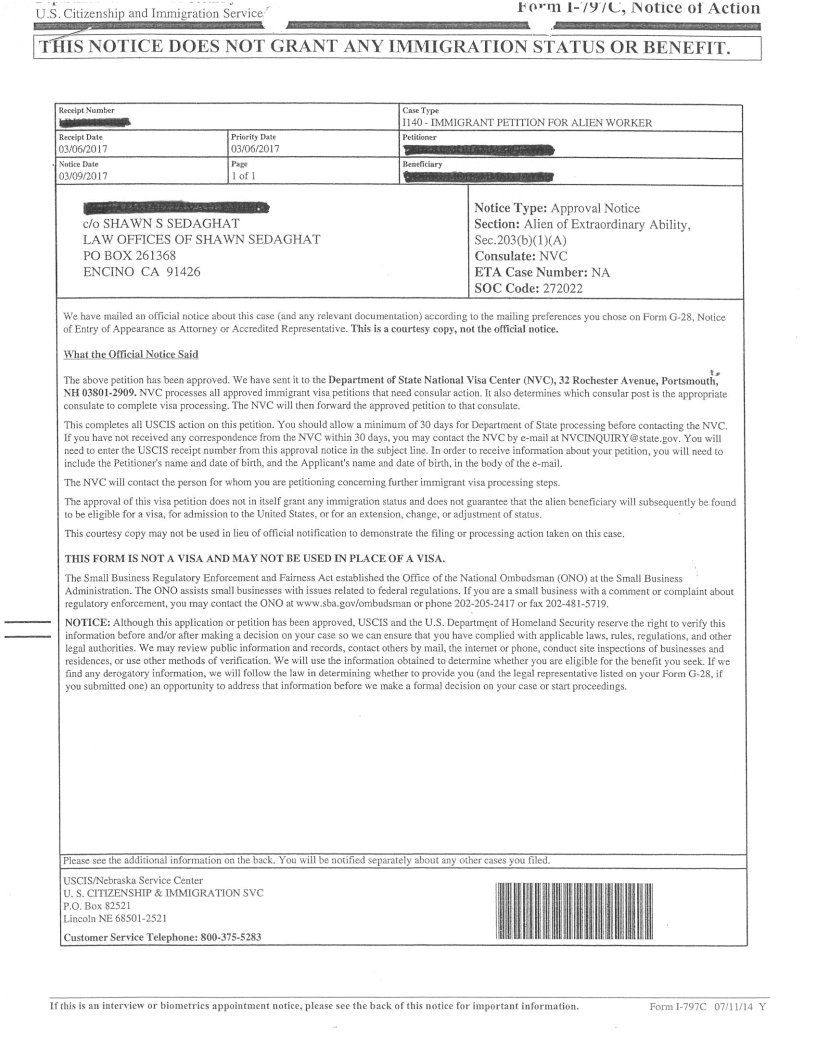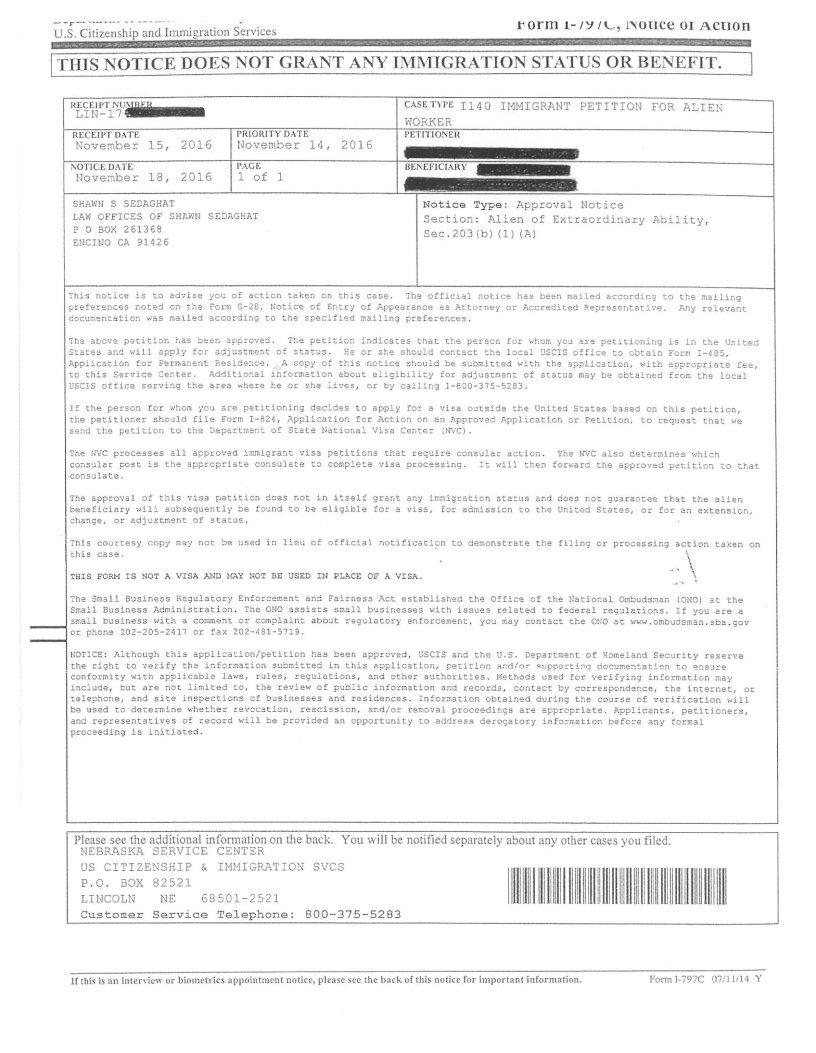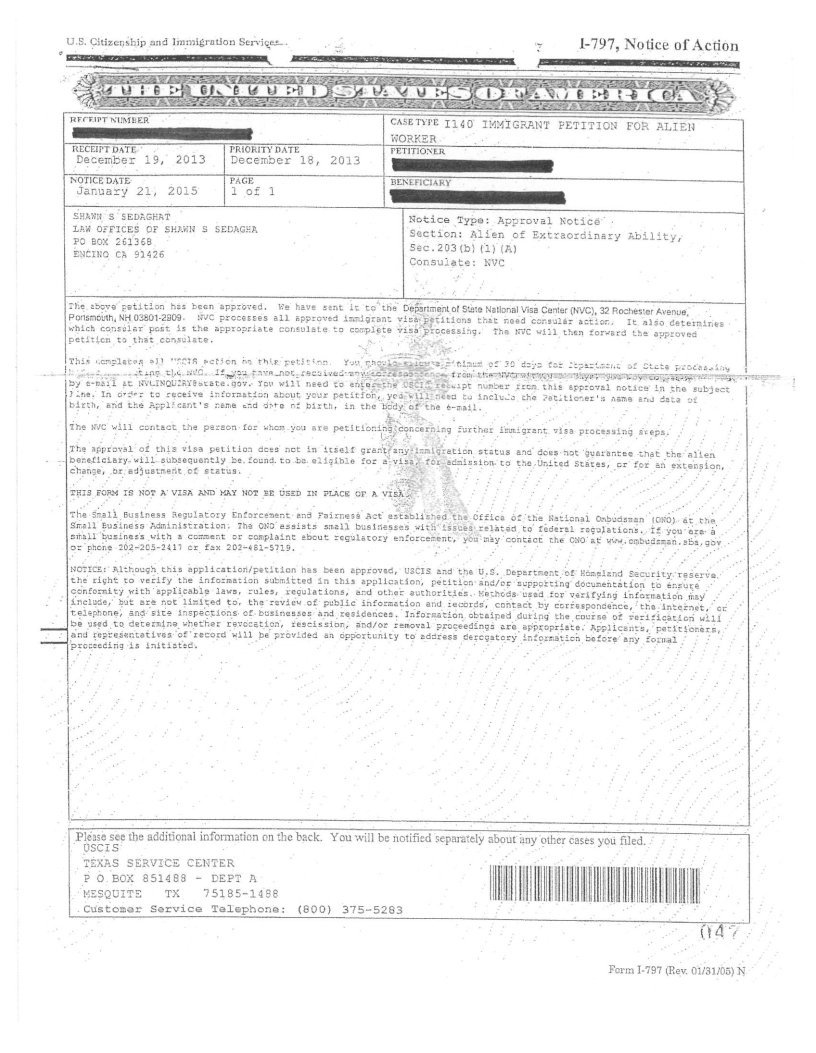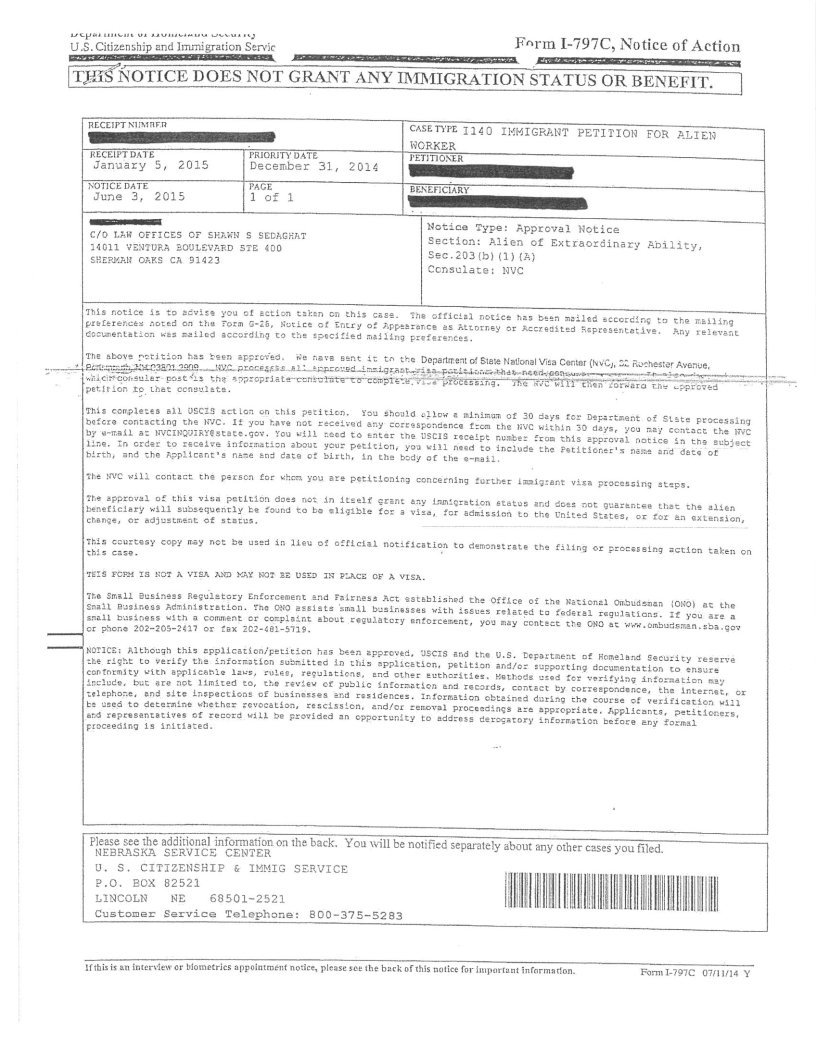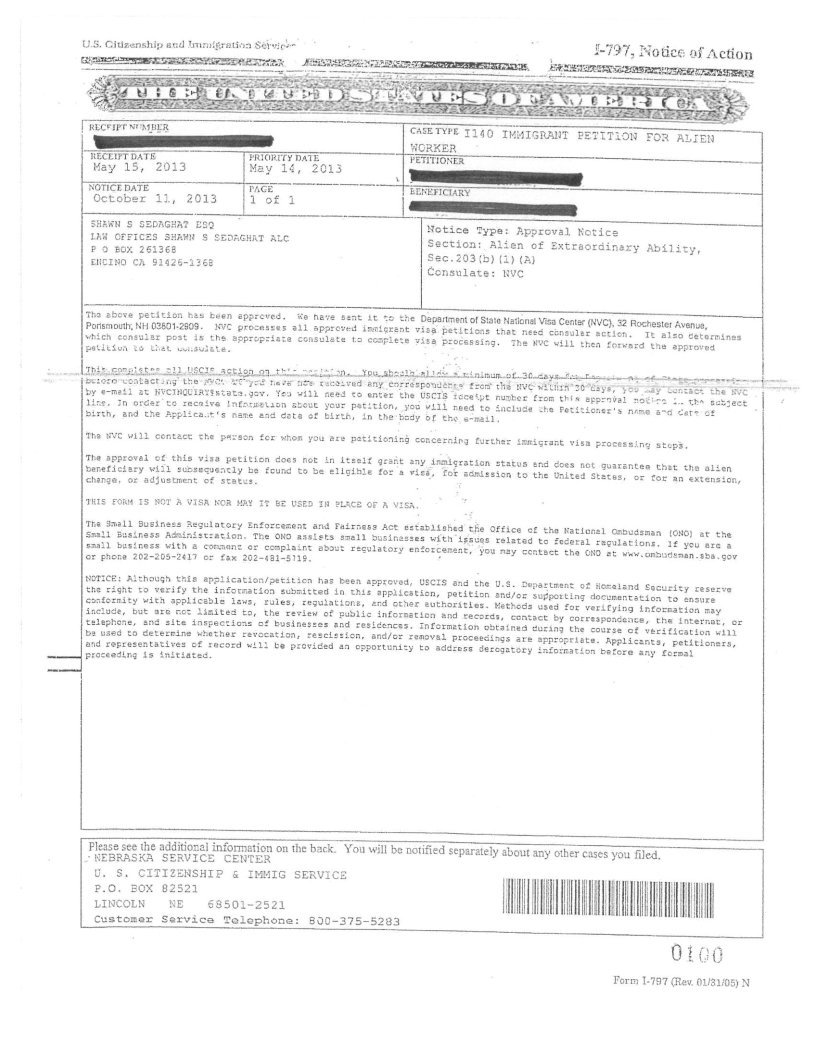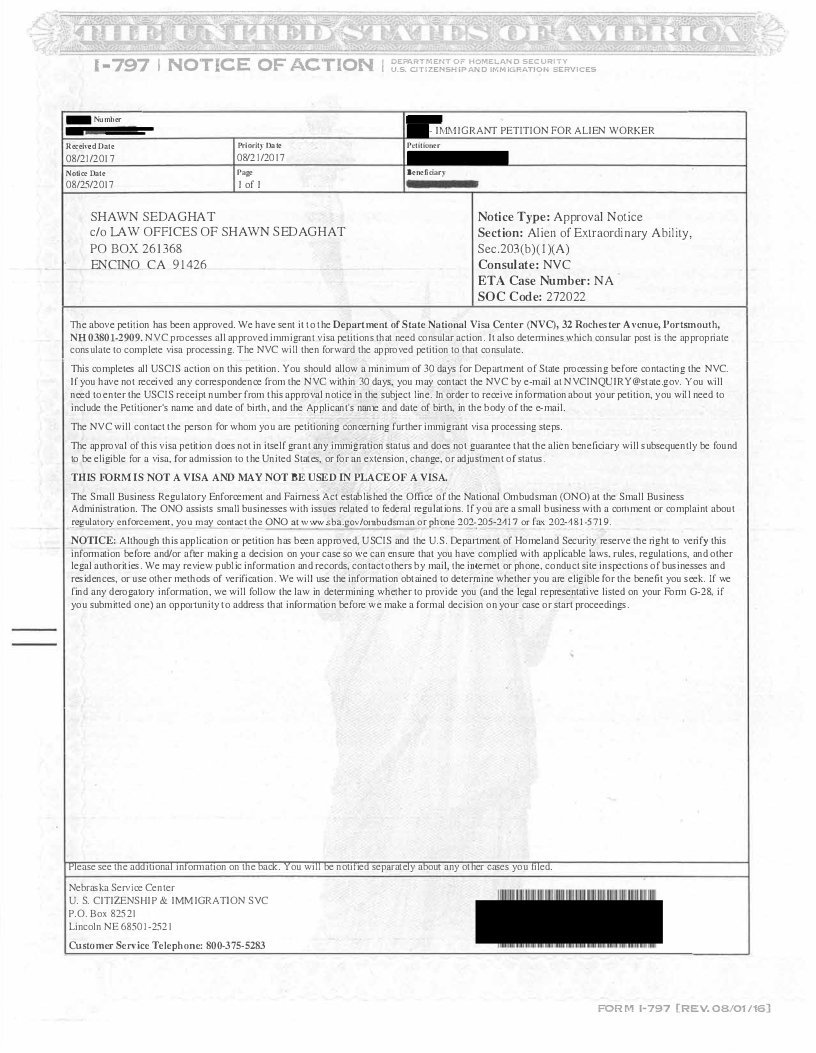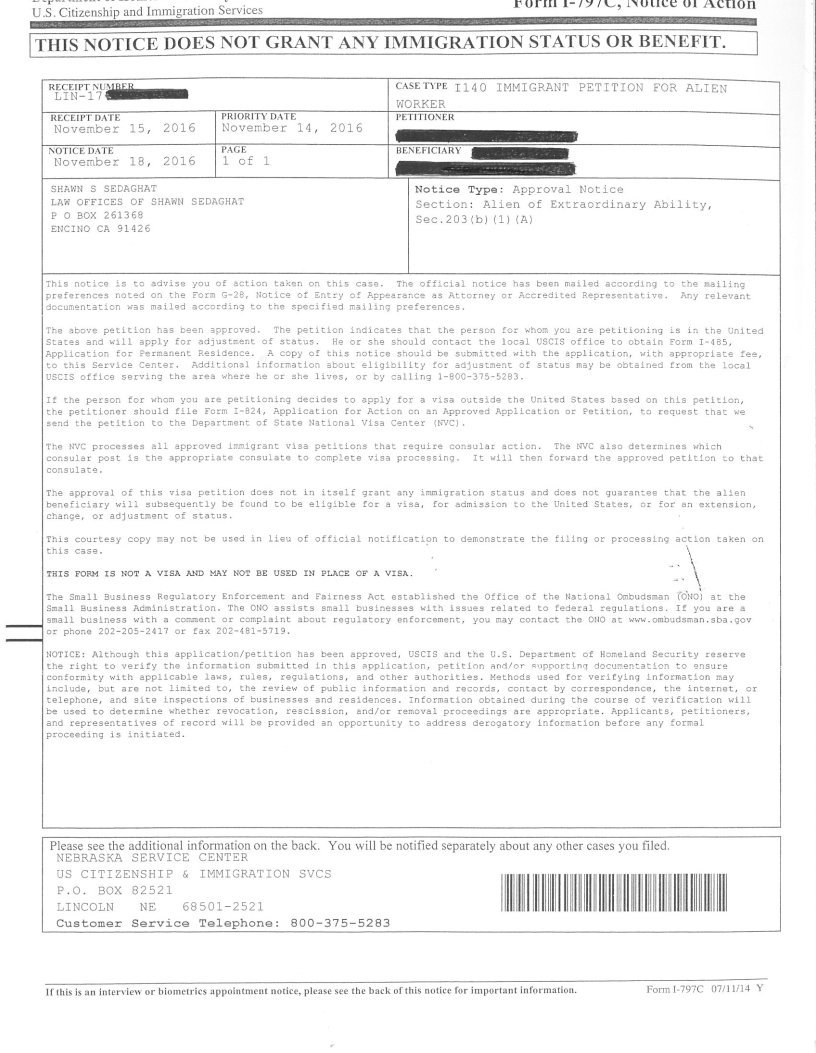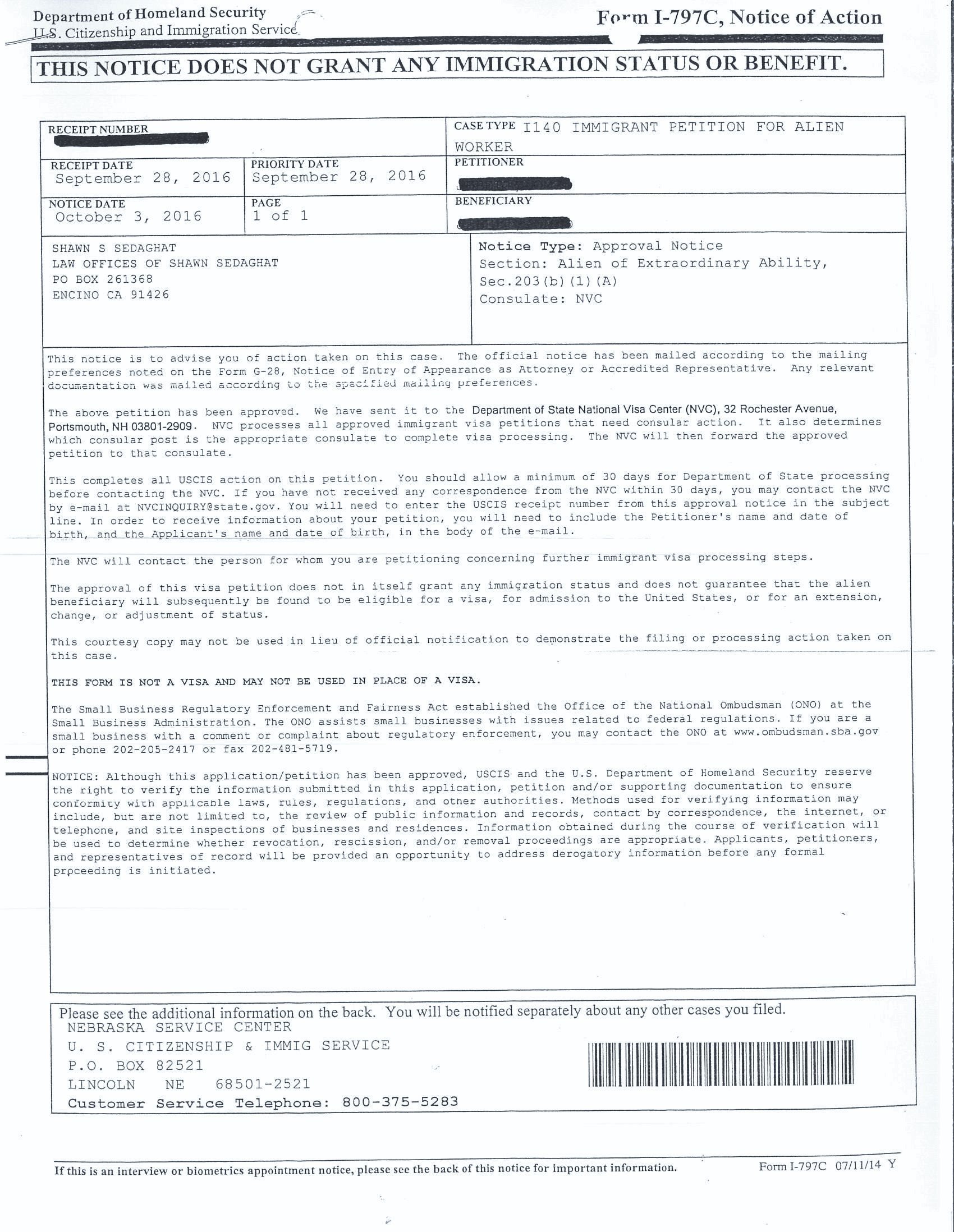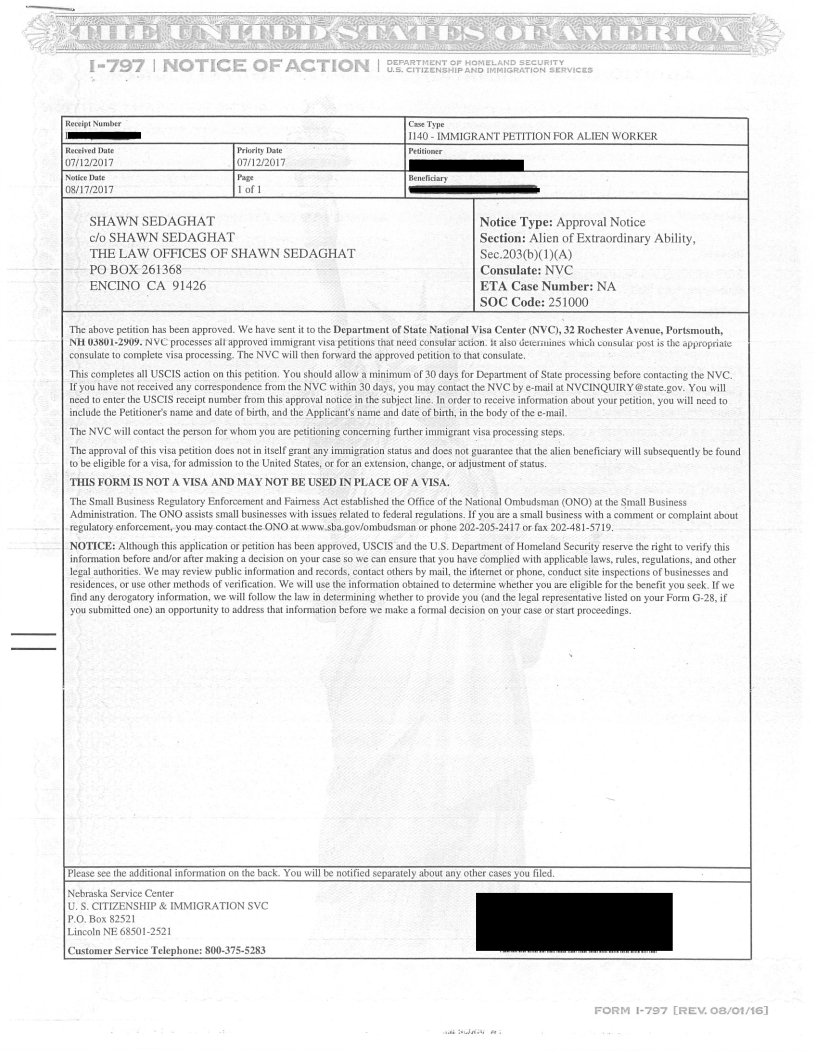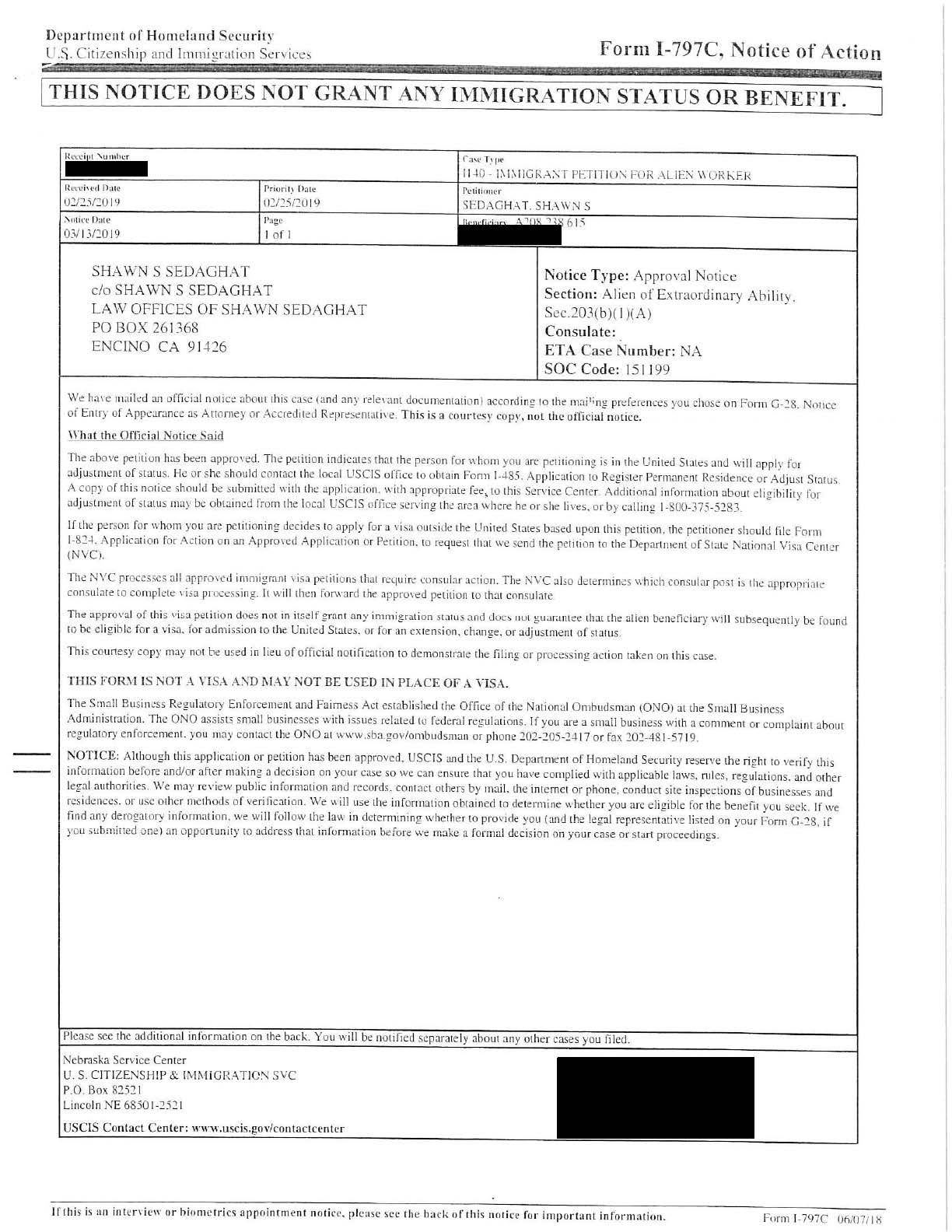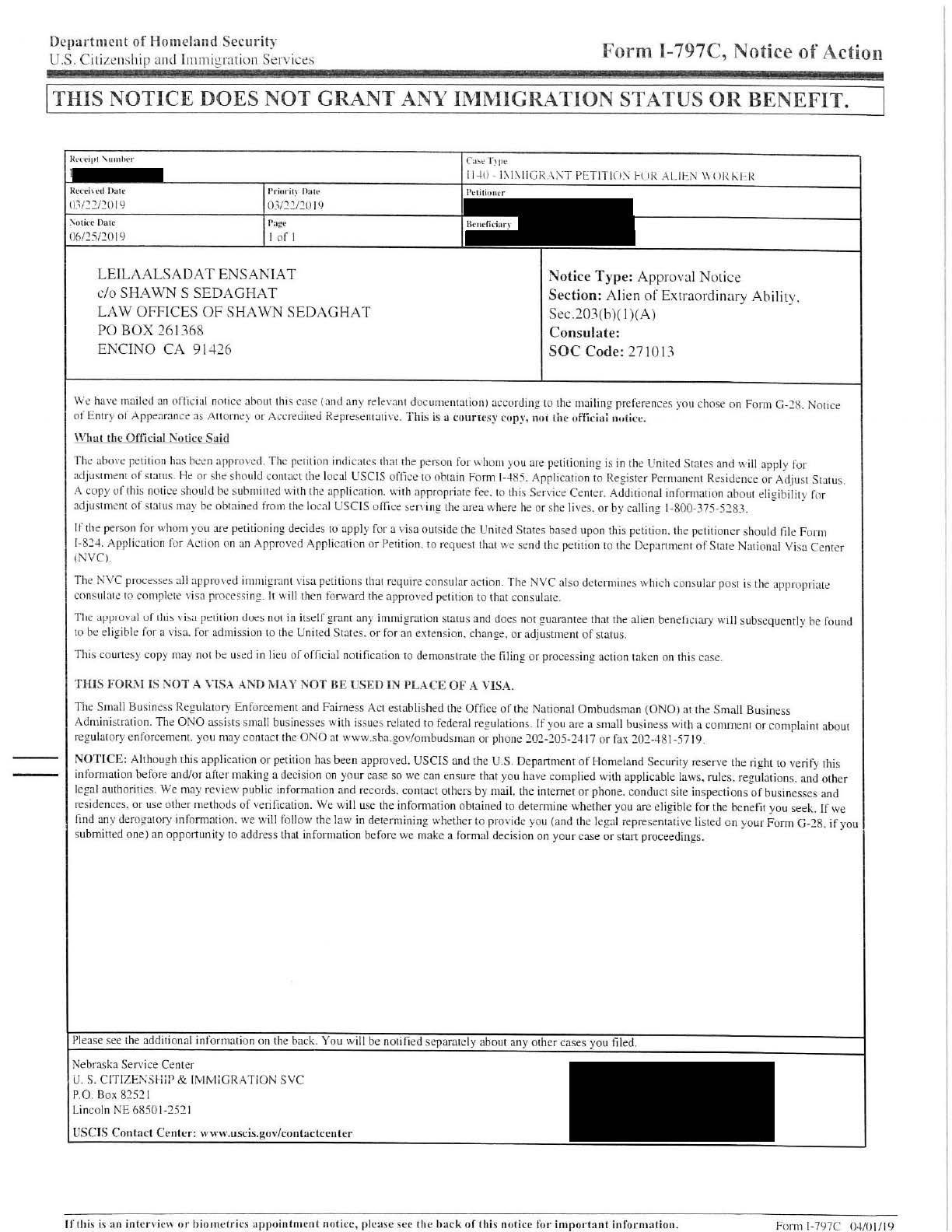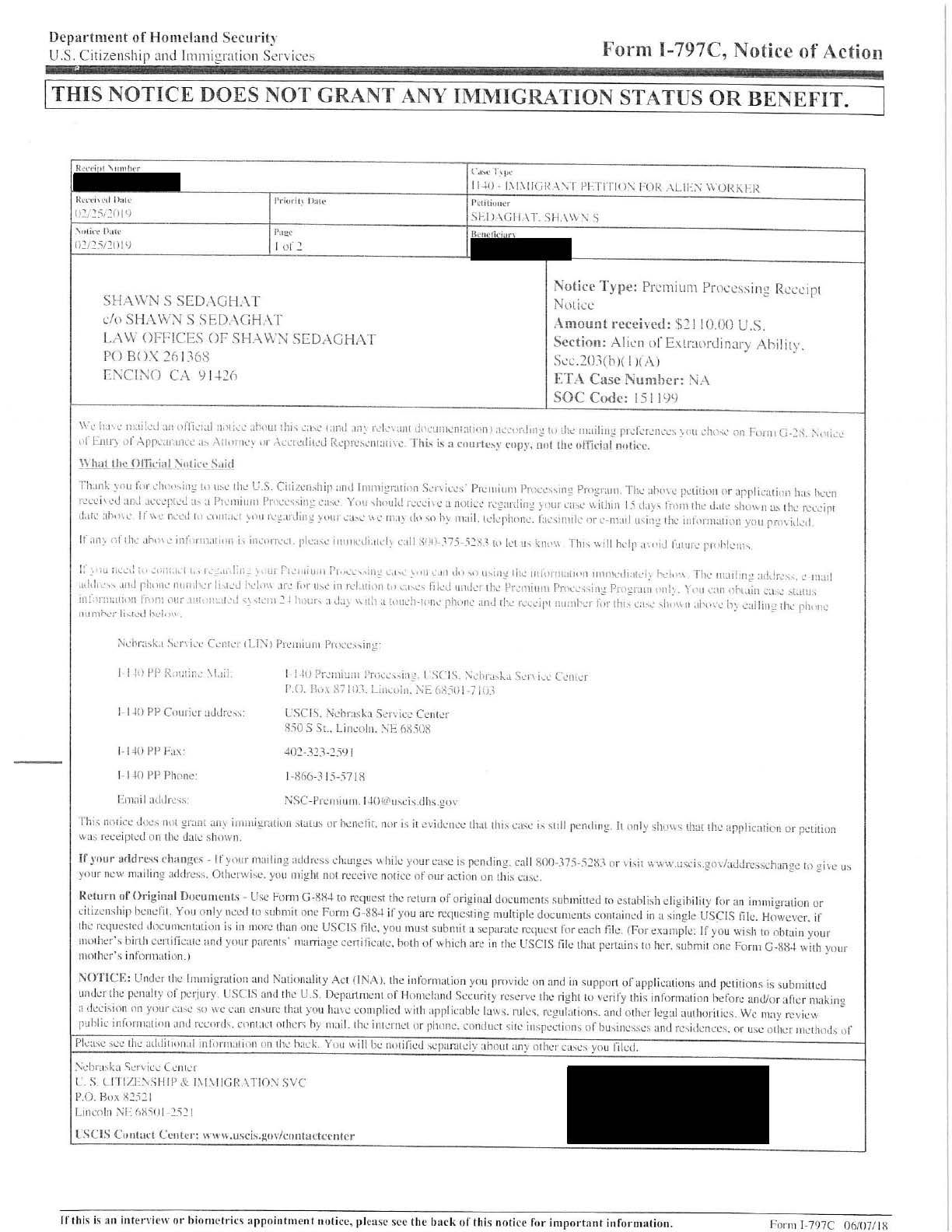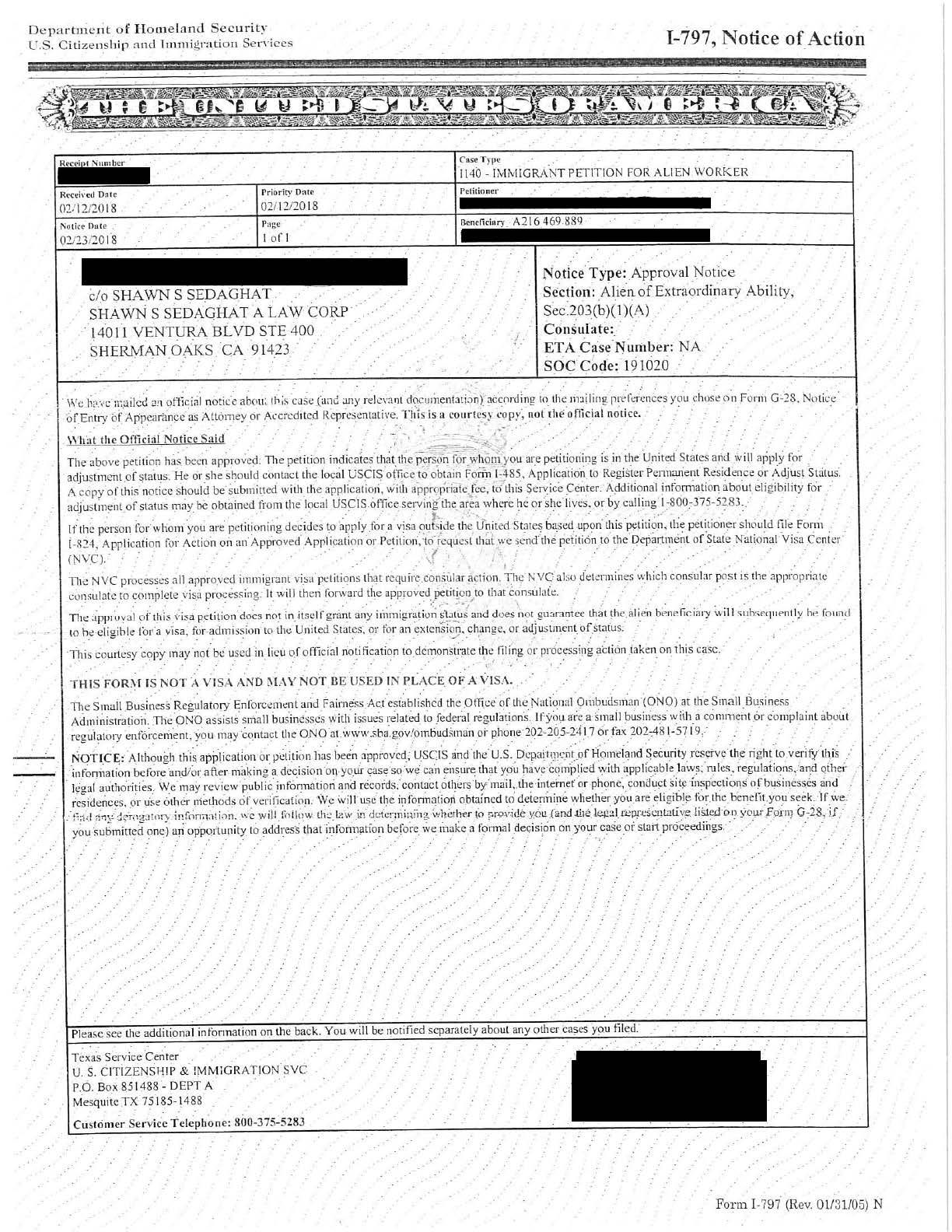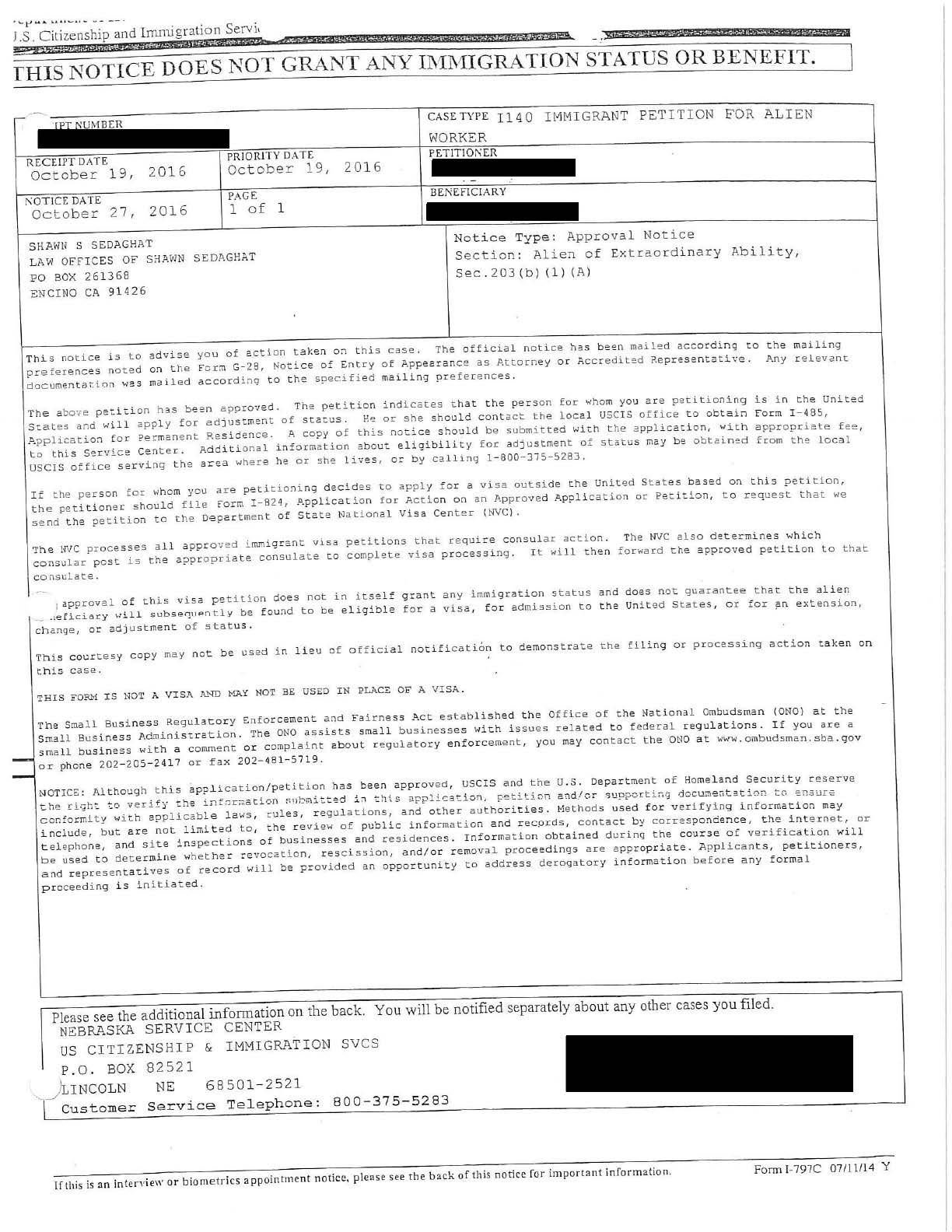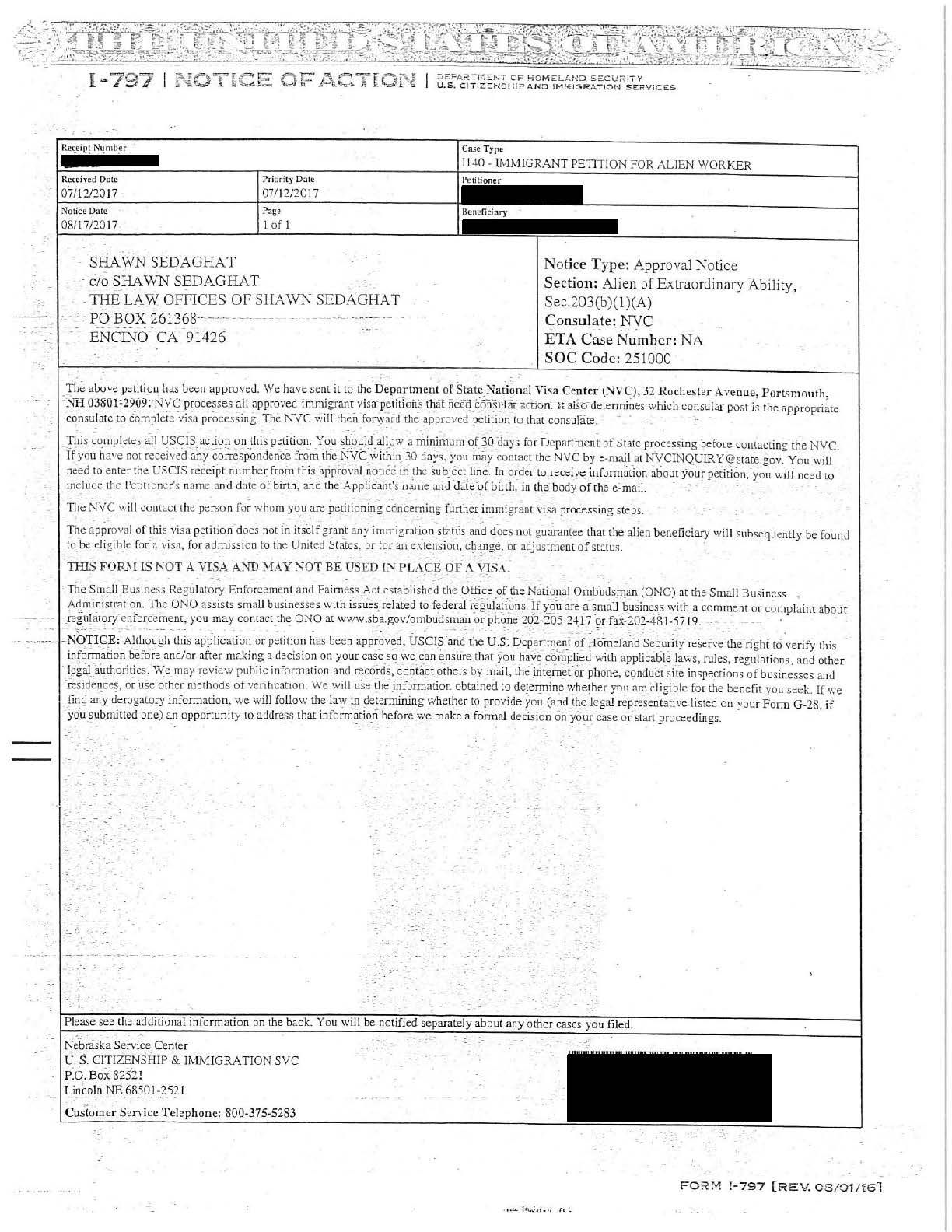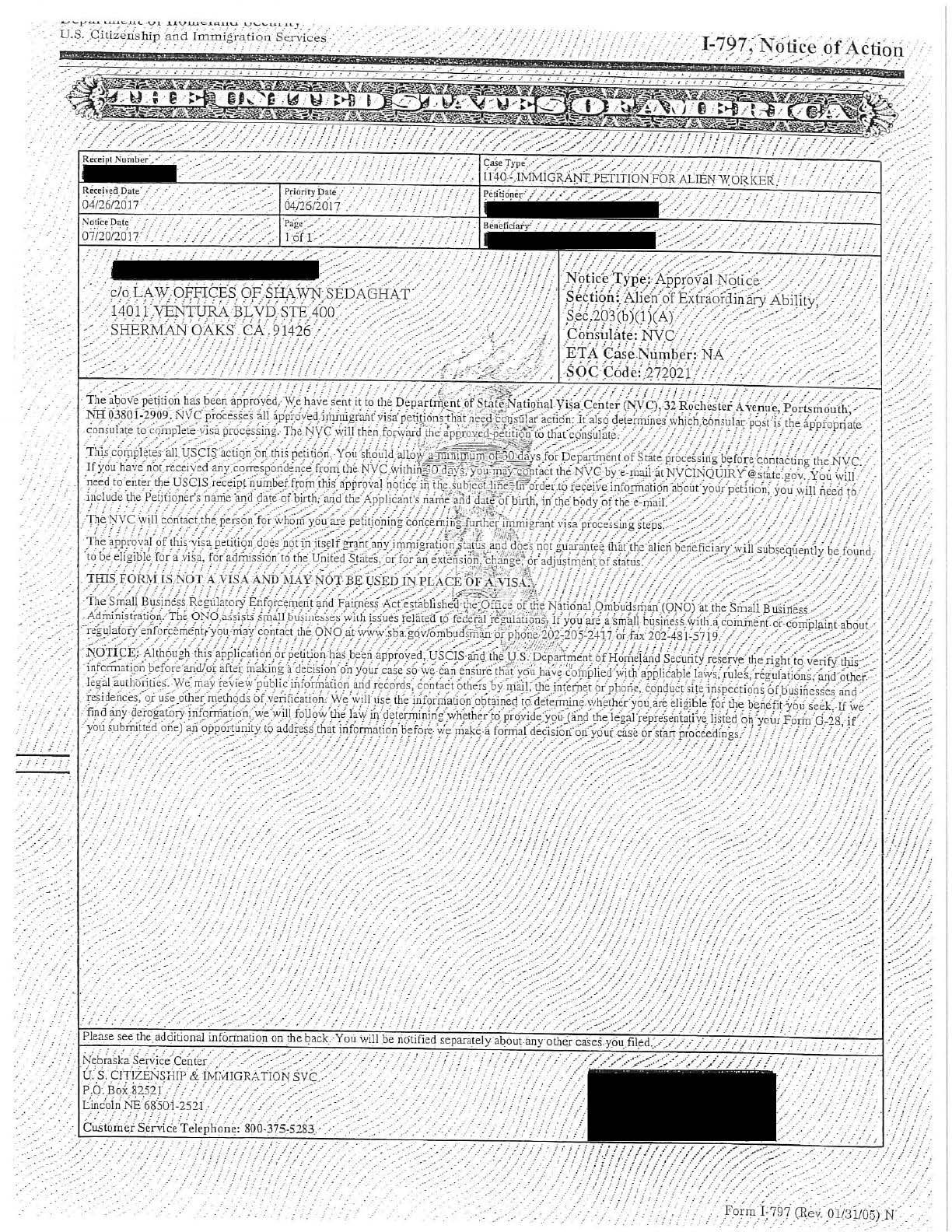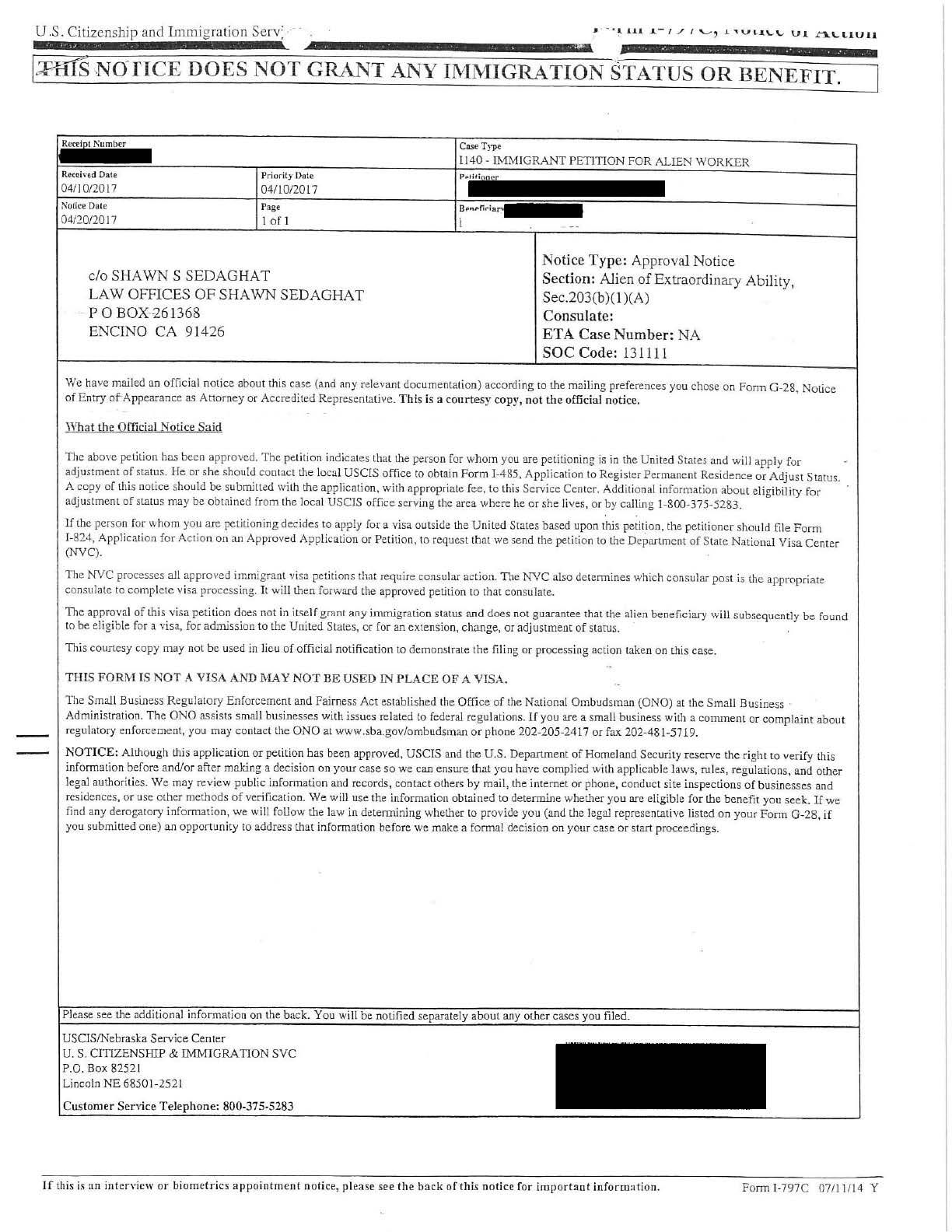NIW & EB-1
Green Cards
+25 Years Experience, 10000+ Clients
NIW or EB-1 by Top Tier Expert Attorneys
Why Our NIW & EB-1
Filings are Approved
The key to our very successful and effective representation of Aliens of Extraordinary Ability and National Interest Waiver cases is our constant effort to keep a database of previous findings by USCIS and AAO, as well as each adjudication center’s particular view of issues. We also employ the best attorneys, technical writers and paralegals and then offer them the best support possible.
Simply put, your case will be in good hands with us.

GET YOUR FREE COPY
WITH EVERY
NIW & EB-1
NIW & EB-1
EVALUATION REQUEST
A BRAINIACS GUIDE TO SUCCESS
30 Real Hacks
Fastrack your EB1 & NIW Cases
By Attorney Shawn S. Sedaghat
Los Angeles CA immigration lawyer will inform you of issues that you may face, and what to do to side-step them, and win your EB-1A and NIW cases in the fastest way. EB1 requirements are very stringent and unless you meet the criteria for this type of visa, you will find that obtaining an approval is very difficult.
CIS received our petition on a Tuesday and issued the approval on a Thursday. This breaks our office's own record for a speedy EB1-A approval without a Request for Evidence (RFE).
Client Reviews
“By far the best immigration attorney in my opinion. My case was approved in less than 6 months ”
Alex M.
“I am really impressed with my experience with this firm and the great staff. I had the best and fast result with my case.”
Hanna H.
“Hands down the best you can hire!!! professional, extremely knowledgeable, passionate and know exactly what to do ”
Tabby K.
“Experienced immigration law office, professional attorneys and staff. Available to answer questions & consult."
Fouad B.
“Excellent Law services... knowledgeable and knows everything about employment based immigration.
Nagendra S.
“Thank you for all your help with my green card You have been wonderful and I appreciate all your help. ”
Sky B.
“They are very caring and will take care of their clients very well. And they perform whatever they promised.”
Ellie F.
“I want to personally thank you for your excellent work and the professional manner in which you handled this case.”
Zeynab B.
“I really appreciate for all you done in my case in very short time , you do the miracle, thank you so much .”
Parisa B..
“Great job helping me get my greencard in just 15 months. They were very responsive when more evidence was requested and turned it around in just a day.”
Hanna H.
“The staffs were very professional and tells you straight to the point whether you'll have chances or not. ”
Divine C.
“I had an excellent experience. They are honest, professional, patient and thorough. "
Fouad B.
“I found their law office to be very professional. My situation was handled with prompt care and completeness."
Marcie L.
“After wasting 2 YEARS of my life with the other law office.
Only after few month, get my approval from immigration office. ”
Nima N.
“The attorney and the team are very Professional, knowledgeable, Experienced and caring.”
Bita M.
“ Extremely professional and caring lawyer who has made the immigration process very smooth for us. Everything happened exactly as she discussed”
Alin N. B.
What Does Our Fee Cover?
*What does the attorney fee cover?
Initial filing stage
1. Unlimited email contacts related to your National Interest Waiver and EB-1 case
2. Assistance in Preparation of sample letters of reference
3. Preparation of a comprehensive letter in support of your petition in which each one of the offered documents is explained and attributed to the appropriate category.
4. Preparing the USCIS petition and cover letter
Our Guarantee of We Will Win It or You Don’t Pay It® applies to most, but not all, cases. In situations were we feel the credentials are not of the quality that we can offer a 100% guarantee, we may offer a partial refund or a regular processing.
NIW
National Interest Waiver
• Proposed endeavor has both substantial merit and national importance.
• Applicant is well positioned to advance the proposed endeavor.
• It would be beneficial to the United States to waive the job offer and labor certification requirements.
EB-1 A
Aliens of Extraordinary Ability
• Demonstrate extraordinary ability in the sciences, arts, education, business, or athletics
• Sustained national or international acclaim.
• Achievements must be recognized in the field through extensive documentation.
• No offer of employment is required.
EB -1B
Outstanding Professors / Researchers
• International recognition for outstanding achievements in a particular academic field.
• Three years’ experience teaching or researching in that academic area.
• Entering the United States to pursue tenure or a tenure track teaching or comparable research position at a university or other institution of higher education.








